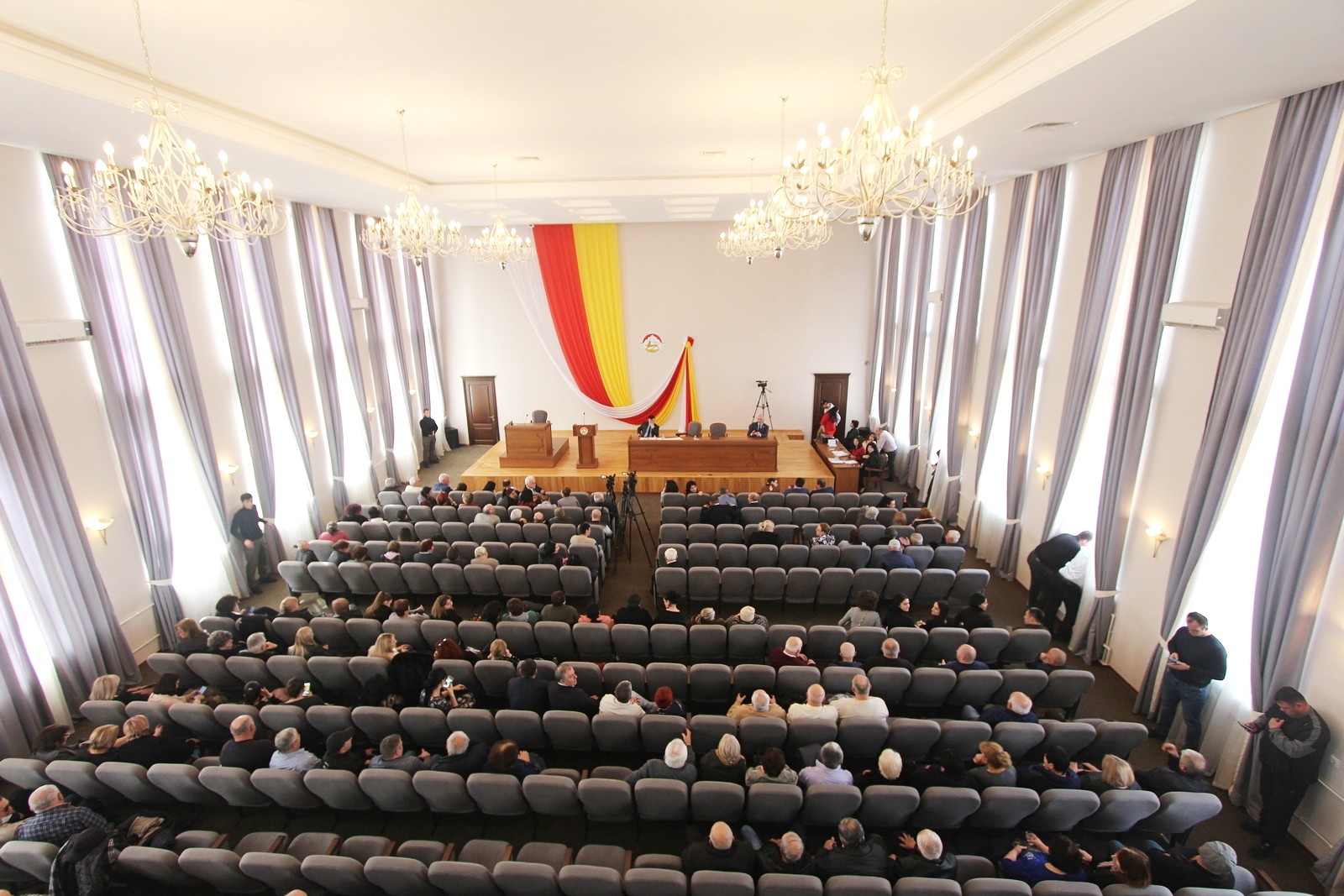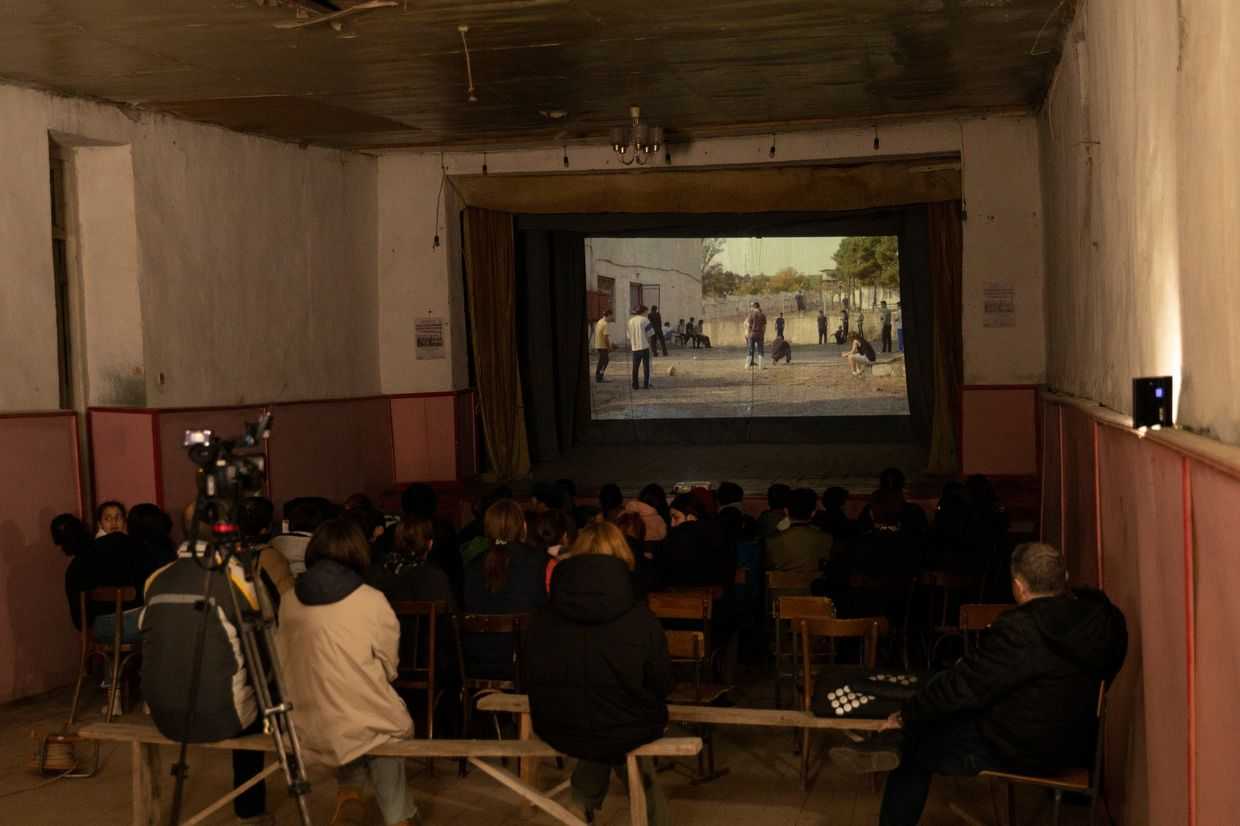
The political crisis in South Ossetia has reached new heights after the 2021 budget was adopted despite not enough MPs being present to achieve a quorum.
On 16 February, 18 MPs voted in favour of the new budget, despite the minimum 23 of 34 MPs not being present for the vote.
Parliament has been paralysed since September 2020 due to a boycott by 14 opposition MPs.
The crisis was sparked by the death in police custody of local resident Inal Dzhabiyev, a suspect in the attempted assassination of Interior Minister Igor Naniyev. The opposition have demanded that President Anatoly Bibilov sack the Prosecutor General, Uruzmag Dzhagayev, who headed the Naniyev investigation.
[Read on OC Media: Five months in, crisis in South Ossetia shows little sign of abating]
In an attempt to justify the decision to pass the budget without a quorum, the deputy chair of parliament, Pyotr Gassiyev, argued that the parliamentary procedures had not been published in the state newspaper, meaning they never came into force.
‘We sent a request to the editors of newspaper Yuznhaya Osetiya and we were told that the parliamentary rules of procedure had never been published’, Gassiyev said during the meeting.
Opposition groups Nykhas, the People’s Party, and For Justice issued a joint statement calling the actions of the 18 MPs who passed the budget ‘the gravest crime’.
‘A decision to declare the rules of procedure as contradicting the Constitution is exclusively the competence of the constitutional court, not the parliament or the speaker. Unless the constitutional court decided otherwise, the normative legal act (rules of procedure) remains in force’, the MPs wrote.
‘It follows that actions based on such decisions are not constitutional and criminal.’
The opposition MPs also stated that the State Security Committee had been informed that the authorities intended to commit ‘anti-constitutional actions’.
MPs also plan to submit a complaint to the courts and the Prosecutor’s Office.
Several commentators have labelled the move a constitutional coup. Former MP Zhanna Kochiyeva argued on Facebook that the incident undermined the rule of law in South Ossetia.
‘Thus, in future, it will likely be possible to bypass any normative legal acts, from the main provisions of the Constitution of the Republic of South Ossetia to other normative legal acts, since there already is a serious precedent for this’, Kochiyeva wrote.
An intragovernmental rift
Many questions were raised by the government’s latest move, including why the authorities did not do so earlier if it was legal, and if all of parliament’s work in recent years was invalid if the parliamentary procedures were in fact not published.
Many also asked why a new government had not been sworn in since August 2020. On 29 August, Prime Minister Erik Pukhayev resigned, yet his cabinet has continued on an acting basis since parliament has been unable to swear in a new prime minister due to the lack of quorum.
On 18 February, a letter from Prosecutor General Uruzmag Dzhagayev was published analysing the activities of parliament.
‘The Prosecutor’s General Office considers it illegal and unjustified to suspend the activities of parliament, which poses a threat to sovereignty, territorial integrity, and the exercise of the constitutional powers of the country’s authorities, since these require […] full-fledged work by a legislative (representative) body’, Dzhagayev wrote.
Opposition MPs called this an attempt by the Prosecutor’s Office to ‘appropriate’ other state bodies.
‘A situation has happened in the republic where the General Prosecutor’s Office of South Ossetia has become involved in politics and is actively fighting against the parliament of the republic’, the MPs wrote.
President Anatoly Bibilov, who has approved the new budget, has declined to comment on the latest developments in the crisis. During parliament’s session on 16 February, he was on an official visit to Moscow.
The president’s press service wrote that Bibilov ‘was scheduled to have a number of meetings with Russian officials in Moscow to discuss issues of socio-economic cooperation between the Republic of South Ossetia and the Russian Federation’, but there have been no official reports on the results of the visit.
The primary geographic terms used in this article are those of the author’s. For ease of reading, we choose not to use qualifiers such as ‘de facto’, ‘unrecognised’, or ‘partially recognised’ when discussing institutions or political positions within Abkhazia, Nagorno-Karabakh, and South Ossetia. This does not imply a position on their status.








